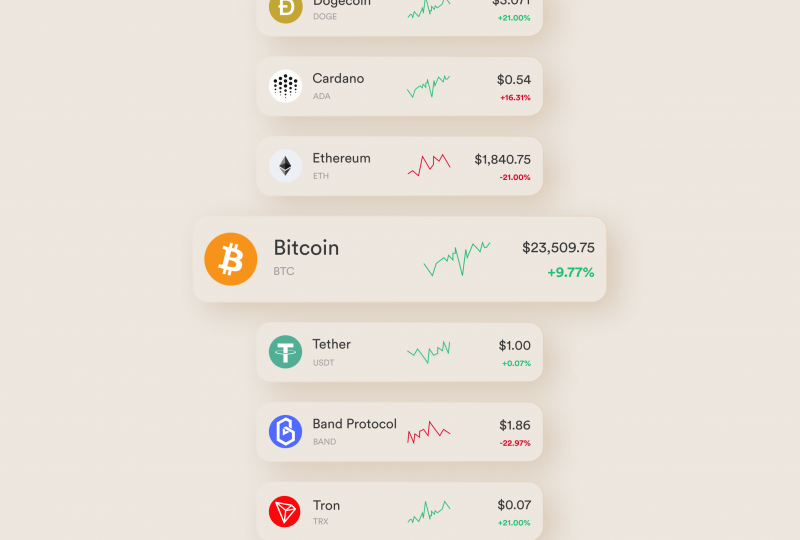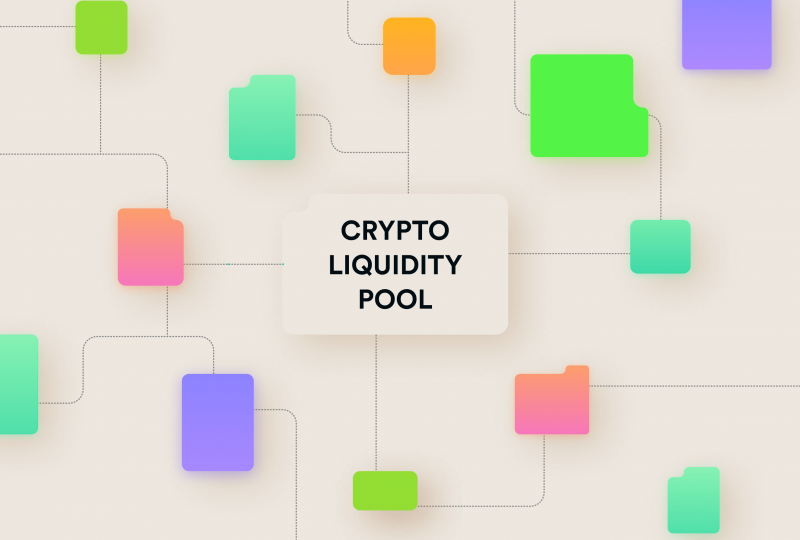How to Provide Liquidity to Cryptocurrency Exchange?
Aug 12, 2022

Cryptocurrency is already changing the face of trading. Due to the greater demand for crypto assets, new exchanges are hitting the market with promised convenience and features. However, every cryptocurrency exchange requires liquidity.
Liquidity is the lifeblood of any currency or financial market. Cryptocurrencies are not an exception to this rule. Although the liquidity in the overall crypto market is unstable, the question of how to provide a sufficient level of liquidity for a trading venue is always relevant for business owners who are just starting their way in the crypto industry.
How Important is Liquidity?

Liquidity is a measure of how easily assets or products can be converted into another asset without altering their price. Simply put, liquidity refers to the ease and speed with which an asset can be purchased or sold.
A crypto exchange’s liquidity determines how easily a trader can exchange cryptocurrencies on the platform. Suppose a trader, for instance, sends a market order to purchase an asset, and the exchange is unable to find enough buyers or sellers in time to make the deal at a reasonable price. In that case, the venue probably doesn’t have enough liquidity. Therefore, the trader is likely to go to another platform.
A high level of liquidity is essential for the fast execution of orders. Platforms execute trades and orders fast when there are a lot of users who are willing to sell and buy assets.
Also, liquidity helps to keep the prices stable. It reduces fluctuations in the market, which impacts the value of cryptocurrencies. The increase in stability also allows traders to make more accurate predictions of future values, allowing them to make better investment decisions.
What Can Affect Liquidity?
It is essential to know what can affect liquidity in order to comprehend the concept entirely.
The number of users heavily influences an exchange’s liquidity. Cryptocurrency wallets or users are a gauge of how many people trust the exchange and trade on it. Having a small number of users makes the network weak since there will be fewer sellers, and they might sell an asset at a high price. In this case, trade execution may take longer than expected.
Indicators of trading have an impact on liquidity since the majority of traders usually search for popular cryptocurrencies with high performance. Thus, trading volumes play an important role in determining liquidity in the cryptocurrency market. Trading volume refers to the number of assets traded at a particular time. With this indicator, you can see how many people buy and sell the coin. To find out how much a certain cryptocurrency is traded on a given day, you can visit any cryptocurrency market cap rankings directory, for example, CoinMarketCap.
The adoption of cryptocurrencies is also a major driver of liquidity. With more and more platforms and companies accepting cryptocurrency transactions, cryptocurrency liquidity grows.
The role of regulations in crypto liquidity cannot be overstated. Various countries have different laws regarding cryptocurrencies, from near-complete acceptance to complete bans. If more countries ban cryptocurrency payments, for example, crypto assets will have less turnover, and their liquidity will be lower.
Ways to Provide Liquidity to Crypto Exchange

Market Makers
There is no question that liquidity is essential for success both in crypto and in traditional financial markets. Because of this, traditional platforms and centralized exchanges often partner with institutional liquidity providers.
A crypto liquidity provider is a third-party company that actively participates in both sides of the market. These companies’ main purpose is to ensure digital assets have a faster market for sale. Alternatively, they are called crypto market makers. In order to provide liquidity, market makers quote both the price of buying and selling an asset. Typically, these providers trade across an array of platforms at once, sourcing the liquidity they need at one platform by executing trades at others.
As some top-rated Forex brokerages intend to offer crypto CFD contracts as part of their offerings, both crypto and FX exchanges need crypto CFD liquidity today. The concept of contracts for differences refers to the fact that a trader does not physically own the assets that underlie the contract. Trading cryptocurrency CFDs is an effective way to make a profit by betting on future movements of certain cryptocurrencies without investing much.
In order to ensure this type of liquidity, a trading platform usually turns to a third-party crypto CFD liquidity provider. Several companies on the market can provide such services. For example, one of the most reputable and well-known liquidity providers is B2Broker. Also, there are many options on the market, so be sure to do your research and compare different providers.
Liquidity Mining
Another way to provide liquidity to exchange is through liquidity mining.
Liquidity mining continues the blockchain tradition of decentralizing crypto functions by involving the community. Exchanges that turn to this method don’t use one single market-making source, like a professional liquidity provider company. Rather, they make open-source software available to many participants.
So what is liquidity mining? The liquidity mining process involves users depositing some of their crypto assets into crypto liquidity pools for tokens and fees. Thus these participants become liquidity providers. Liquidity mining is based on the decentralized finances (DeFi) concept, and the process is usually automated with AMMs (automated market makers), which are protocols that price assets according to a specific algorithm.

By connecting their crypto wallets, liquidity miners set parameters for market-making trades to be automatically executed on certain exchanges. Algorithms generate and distribute a pool of rewards among miners, with reward levels increasing for miners who risk more.
As a result of many users depositing crypto into the exchange’s liquidity pool, liquidity is created. Traders then use all these deposited coins for trading on the exchange.
Market Making between Exchanges
By becoming a market maker himself, the exchange operator eliminates the need for third-party companies to provide liquidity.
As a market maker, an exchange operator is responsible for setting the prices of assets at their own venue. They do this by taking the prices from other exchanges – known as taker exchanges or source exchanges – and adding a markup to them.
This method lets venue operators source liquidity without paying a third party. But it has some issues with capital efficiency. Exchange owners practicing cross-exchange market making cannot use their capital for other profit-generating purposes or frequently rebalance across trading venues.
In Conclusion
There is no easy solution when it comes to providing liquidity in the cryptocurrency industry. Each strategy has its own pros and cons. There is no clear indication as to whether liquid mining can be scaled up to meet mainstream trading needs. Cross-exchange market making may work, but there may be some issues with capital insufficiency. For many exchange owners, partnering with third-party market makers is the most effective solution since it gives them access to credit lines and attractive quotes.Modern financial market research methods involve investing in financial assets (in particular, forming a securities/assets portfolio), which is carried out based on thorough analysis. At the moment, it’s possible to find many valuable tools for traders, which in one way or another, facilitate the process of trading or preparing a setting for this trade.Crypto Exchange Business
Wondering how these solutions can boost your business?
Leave a request, and let our experienced team guide you towards unparalleled success and growth.




